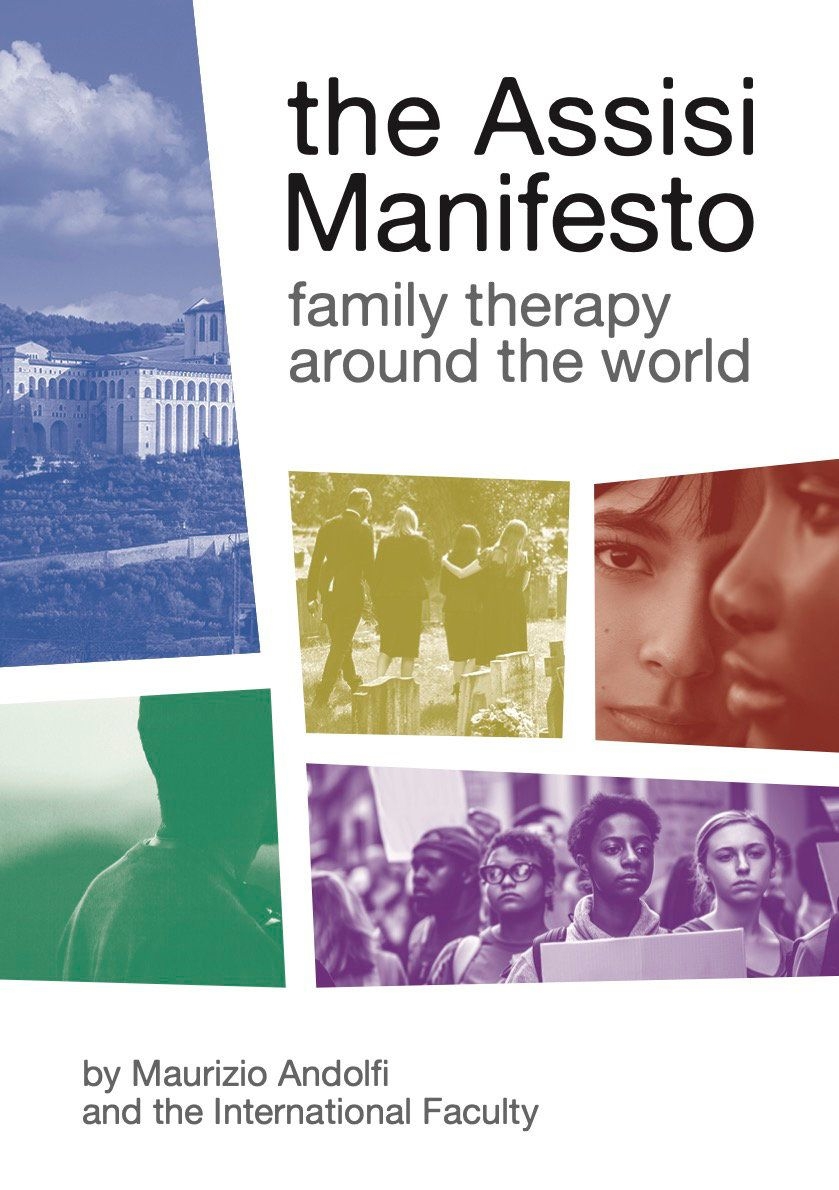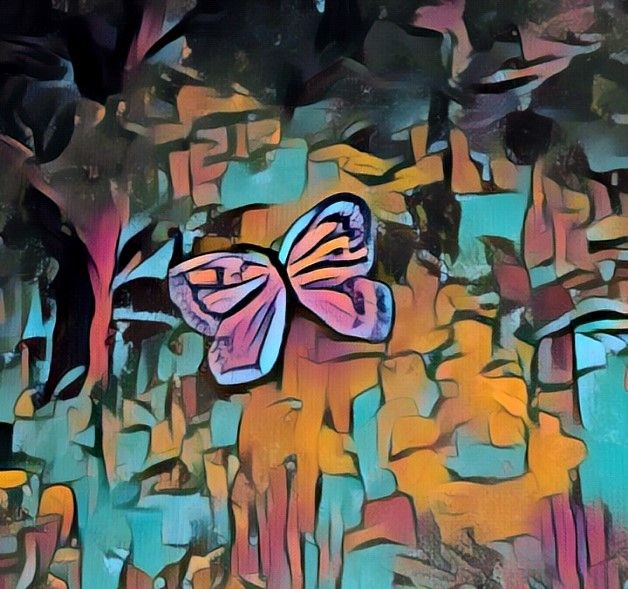by Maurizio Andolfi and the International Faculty
PREAMBLE
In July 2023, over a thousand psychotherapists from over 50 countries and of every orientation gathered in Assisi (Italy) for three days to celebrate family therapy, its impact and potential, and to exchange ideas. The conference was entitled Family Therapy: The Road that Connects Individual and Social Resources. It was initiated by the Accademia di Psicoterapia della Famiglia in Rome, and was sponsored by the American Academy of Marital and Family Therapy (AAMFT), the Australian Academy of Family Therapy (AAFT), the Asian Academy of Family Therapy (AAFT), the European Family Therapy Academy (EFTA), and the World Association of Social Psychiatry (WASP).
While there were three official languages — English, Italian, and French — many different languages were heard among the excited participants attesting to the conference’s global appeal and influence. This manifesto is an outgrowth of that meeting and the many participants who offered their ideas of what is critically important in working with families, synthesized by an International Faculty of family therapy leaders.
HISTORY
Family therapy as an innovative mental health treatment emerged 70 years ago in the U.S. and spread throughout the world as a revolutionary intervention, often at odds with prevailing treatment modalities that targeted intrapsychic dynamics. Shifting the focus from individual disorders and complaints to include the family and the community was not just a different approach; it was a political turning point that contextualized the “identified patient” and highlighted therapeutic resources within the family and their social environments. For a long time, therapists, all over the world identified themselves as being part of the family therapy movement, belonging to a large community of professionals.
NEW CHALLENGES
Mental health treatment has become a standard and common practice in many countries, and DSM diagnostic language has entered the vocabulary of everyday life. However, the overreliance on hospitalization and overuse and at times abuse of labels and medications have increased due to the search for a quick and inexpensive fix. Financial pressures on underfunded mental health systems also played a role as did the global cultural rise of narcissistic individualism at the expense of relational connectedness. Family fragmentation compounded by atrocities and wars all over the world, displacement and forced migrations, gender and wealth inequality, and climate change pose huge challenges for families and ultimately individual wellbeing.
We declare with this Assisi Manifesto the need to acknowledge the interconnectedness of individuals, families, communities, and societies, and incorporate family therapy as a vehicle for accessing resilience and healing. With the fresh perspectives and enthusiasm of the younger generations of family therapists and the emerging movement of therapists in Asia, Latin America, Africa, and Eastern Europe, along with the lessons we learned through our history, we seek to reinvigorate an understanding of families and communities, their cultural values and resources.
WE MUST LISTEN TO CHILDREN, AND ADOLESCENTS
We are gravely concerned about the dramatic rise in adolescent mental health issues, since the beginning of the COVID pandemic. Teenagers are more at risk in a fragmented and toxic society where family disintegration, single parenthood, and absent fathers are becoming the norm. Unresolved parental and intergenerational conflicts, and marginalization along with the deleterious impacts of social media, are damaging adolescents’ healthy development, resulting in a variety of symptoms and disorders that threaten to morph into persistent and universal traits. Yet, their voices remain unheard, particularly in therapeutic contexts in which they are absent or removed from the therapy room. Young children cannot be seen anymore as individual problems or as isolated victims of abuses. They have a voice to be heard and relational competence to be used in therapy for family healing.
With this manifesto, we assert that it is essential to listen to youth voices without prejudice and labelling. They speak for themselves as well as for their families. Their voices, sometimes arrogant or bizarre, angry and provocative, are often a desperate cry for love and care. We need to go beyond psychiatric categories and symptoms in order to understand their needs and their constraints, to be able to see them holistically within their relational bonds. We must do so, without parent blaming and also by acknowledging and understanding the difficult human conditions overburdened parents must not face alone. We know from the extant research that family therapy works, and is an effective empirically-based therapeutic modality with children and teen agers in any given culture.
COUPLE CRISES AND DIVORCE
Couple crises are complex and multifaceted, encompassing a large range of issues that can challenge the stability and harmony of all relationships. These crises are often seen as private battles, but are both a symptom and a cause of problems within the larger family system. Couple crises are emotionally contagious within the family system, particularly in the case of divorce. Extended family, children in particular, and even friends experience the emotional fallout of the couple’s crises, assuming caregiving responsibilities or becoming triangulated in spousal conflict. This manifesto recognizes the interconnectedness of couple crises (including those of same-sex and non-traditional family units) with the broader family structure, offering a path to couples for healing and resilience within the family with a multigenerational approach as a component.
LOSSES, TRAUMA, AND RESILIENCE
Death is an inevitable condition of our existence. However, we die and suffer in different ways according to our cultural traditions, religions, and spiritual beliefs. Categorizing mourning as healthy or pathological based on outdated individual, temporal, linear stages of grief is inaccurate and reductionistic. As family therapists, we can facilitate relational processes that strengthen families and facilitate coping with expected life events as well as traumatic losses linked to the violence, wars and forced migrations we are currently witnessing on an unprecedented, global scale. As multigenerational systemic and community therapists, we understand how such experiences impact families over generations, and intervene to help them overcome current and historic traumatic and painful experiences by promoting reconnection and forgiveness.
SOCIAL AND CULTURAL DISCRIMINATION
Our world is increasingly divided and fractured by cultural discrimination, economic injustice, racism, homophobia, transphobia, sexism, political repression, warfare, and natural disasters; we must recognize not only the vulnerability of families and children caught in these difficulties, but also their resilience in coping and surviving. As family therapists, we recognize the pressing need of a manifesto that values flexibility and guides practice inside the therapy room but also, where families are – in the streets, shelters, churches, and community centers. Additionally, our manifesto is a call for action, advocating for social justice via empowerment, inclusivity, and the recognition and establishment of basic human rights.
TRAINING
Working with families and communities is not easy. We advocate intensive professional training, based on established theories and methods along with clinically supervised field practice. In addition, psychotherapists must do ongoing work on understanding the traumas, adversities, losses, failures, resilience, and coping in their client families and also their own. The Assisi Manifesto is a declaration to contact our professional associations, universities, and private training Institutions in order to encourage them in this direction. In this way, we hope to increase a sense of belonging and scientific exchange among a large global community of family-based professionals.
CONCLUSION
Considering the current political and religious divisions in our world as evidenced by growing populist political movements, devastating wars in Eastern Europe, the Middle East, Africa, Asia and elsewhere, as well as waves of migrants and refugees, now more than ever, it is time to recognize and strengthen the family as the foundation of society and thus an important vehicle for healing. It is in this spirit that we submit this manifesto, which has been endorsed by the Assisi Conference Sponsors.
November 23, 2023
THE AUTHORS
Maurizio Andolfi, Child Psychiatrist, Director of the Accademia di psicoterapia della Famiglia, Italy.
The international Faculty:
Mary E. Hotvedt, PhD, Regent. Western New Mexico University, U.S.A.
Michael LaSala, PhD, LCSW, Professor, School of Social Work, Rutgers University, U.S.A.
Alejandro Astorga, Clinical Psychologist, Director of the Multigenerational Center, Santiago de Chile.
Bawany Chinapan, Clinical Director, Andolfi Family Therapy Center (AFTC), Kuala Lumpur, Malaysia.
Ivy Daure, PhD in Psychology, Director of the Art of Psychotherapy Collection, Publisher ESF Sciences Humaines, France.
Joel Elizur, PhD, Associate Professor Clinical Child & Educational Psychology Program, The Hebrew University of Jerusalem. Israel.
Vanessa Espaillat, PhD, Director of CONTINUUM – Centro de formación y psicoterpia (Dominican Republic).
Olga Falceto, Child Pychiatrist, Coordinator Instituto da Família de Porto Alegre (Brasil).
Mustafa Qossoqsi, PhD, Chief Psychologist Dpt. of Psychiatry, English Hospital in Nazareth. Cofounder of the Arab Psychological Association, Israel.
Christine Senediak, Clinican Psychologist, Director Clinical Supervision Services - Sydney Family Therapy Institute (Australia).
Tazuco Shibusawa, PhD, Executive Officer Shibusawa Eiichi Memorial Foundation, Japan.
Greet Splingaer, Clinical Psychologist & Orthopedagoque, Director of Family Training Institute and Family Therapeutic Centre Rapunzel (Belgium).
Ovidio C. Waldemar, Child Psychiatrist, Co-coordinator Instituto da Família de Porto Alegre (Brasil).


